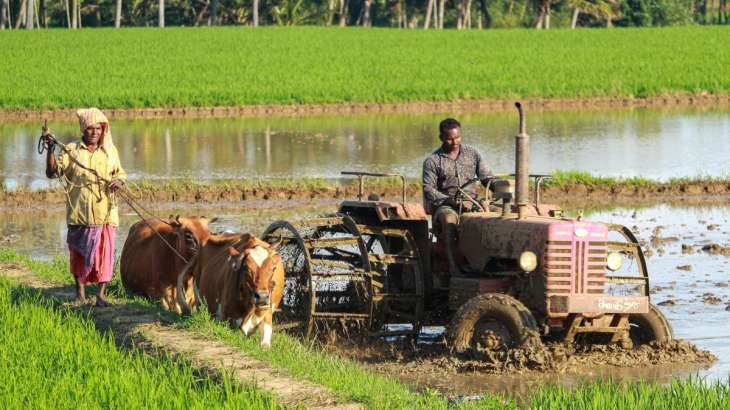Budget 2023: Agritech Industry demands stable export policy, increased digitisation

Union Budget on Agriculture: Agriculture has been a fast-growing sector for ages now, but the hurdles in between are inhibiting further growth of this industry. The aim for digital India propels the country to incorporate tech in agriculture – a way to take the sector to new heights.
There are however complexities in place that would cripple agriculture to go beyond. Some of them include improper climate conditions, lack of proper resources, geographical issues, etc. Last couple of years were full of uncertainty, pandemic tensions, economic slowdown, border tensions, and global issues.
Despite the hiccups, the agricultural sector managed to do well. As per the government records 2022, the food grain production spiked from 08.65 million tonnes in Jan 2022 to 315.72 million tonnes in Dec 2022. Last year, it was more of a data-drive approach rather than tech-oriented.
As the end result is what matters, people are expecting more with respect to budget allocation for agriculture, especially in the agritech domain.
Given the hardships the agritech startups endure regularly, a lot of groundwork has to be done to accomplish an impossible feat. The recent data reveals that there are 1700+ agritech startups in India.
The integration of tech and agriculture not only upgrades the existing agriculture sector but also creates more opportunities for farmers and generates employment for the people.
As per AgFunder and Omnivore report, the investments in agrifood-tech startups surged by 119% to $4.6 billion as of 2021-2022. In the coming years, there will be a rise in creating awareness about the significance of tech inclusion in agriculture.
The sector expects the government to allocate a percentage of budget to awareness initiatives to spread a word about the future of agritech.
Managing Partner at Omnivore, an agri-focused venture capital firm, Mark Kahn, says that the price fluctuations in agri-products hinders India to halt exports, which affects the nation to be a dominator in the export race.
He also added that there has to be a policy that facilitates the exports of agri products despite the price movements.
Speaking of digital integration, the methods are ancient and debased, and adoption of digitization involves a complex process like licensing, regulations, funding, investments, and much more.
However, the sector is counting on the 2023 budget with a hope that the government would bring some value to the table. Digitization not only enhances free trade between borders, resulting in ease of doing business.
Due to complicated licensing, registration and other norms, the agri-business has been nowhere close to the expected outcome.
FAQs:
1) Why agritech startups are in huge demand in India?
Ans) As India is going fully digital, the need for inclusion of tech in the agri sector makes a huge difference to the nation as well as the farmers. Even the government is supporting the sector to arrange swift funding at less rates.
2) What are the number of agritech startups in India as of 2022?
Ans) India witnessed a spike in agritech startups for the last five years. As of today, the number of agritech startups in India are 1729.
Latest Business News
For all the latest Business News Click Here
For the latest news and updates, follow us on Google News.

